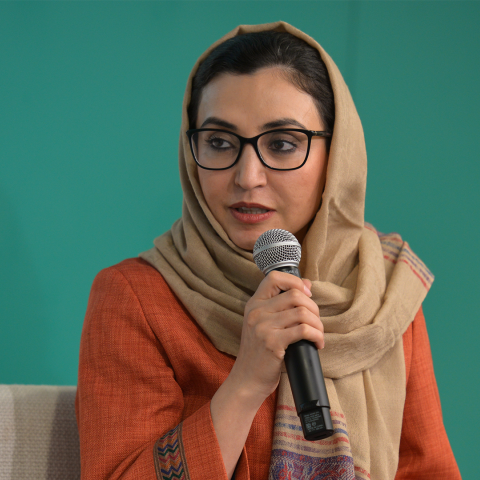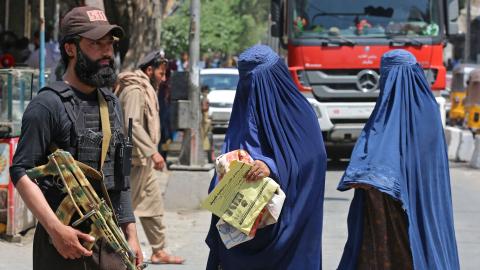For two years, the Taliban has controlled Afghanistan. When the Taliban regime collapsed in 2001, Afghan women believed that their suffering had ended. They aspired for a life where their rights were safeguarded by a constitution that would pave the way for transformative change.
Over the next 20 years, women in Afghanistan embarked on an impressive journey of advancement. They seized each opportunity that crossed their path and dismantled numerous obstacles. However, this hopeful chapter did not last long. On Aug. 15, 2021, the Taliban returned to power and shattered the dreams of Afghan women and girls who once envisioned a future of limitless possibilities. However, amid this despair, Afghan women stand resolute in their pursuit of change, and there remains an opportunity for the international community to reaffirm its commitment to women’s rights in Afghanistan and across the globe.
In 2020, when the Doha agreement was signed, Afghan women were the first ones to warn against it. Many of us had experienced life under Taliban rule from 1996-2001. What the Taliban said during the peace talks in Doha was not genuine. We knew that its beliefs about women had not changed. Taliban’s commitment to women’s rights in Doha were only in words to gain the support from the international community. The Taliban’s official stance on women’s rights, still derived from the Quetta Shura, which remained the same in the late 1990s: Women will have rights according to Islamic Sharia Law. Under the name of Sharia Law, the Taliban interpret matters in a manner that serves their interest.
Today, Afghanistan is the only country where women are not allowed to get an education. They are confined to their homes and stripped of their social and political freedoms. World leaders voice condemnation yet fail to take meaningful action. Unfortunately, the Taliban’s version of Islam is slowly gaining acceptance. Some Muslim-majority countries such as Saudi Arabia are opening up, empowering women and putting them in the forefront of their society. But Afghanistan under Taliban rule is moving in the opposite direction. Other countries have women leading and inspiring other women, showing them what is possible. But for Afghan women, nothing is possible anymore.
The world seems to have turned a blind eye to the Taliban’s brutal doctrine and governance. Western leaders speak about women’s rights, education and the eradication of violence, but Afghan women are isolated from these conversations. Yet, they have refused to accept the regime’s oppressive rules and persist in their fight — both in the streets and within the confines of their homes. Their tenacity offers a glimmer of hope amid the darkness, further strengthened by the unwavering support of women activists across the globe. This solidarity transcends political borders and stands as a testament to the precarious nature of women’s rights globally.
Many women around the world fear a rollback of their rights. In an unstable world, even the foundations that appear secure can crumble, whether in the United States or Afghanistan. It is imperative that we do not abandon Afghan women, nor allow the debate on “security” to override their rights. History underscores that true stability requires the security of women and their rights in a society.
The international community’s involvement must transcend the realm of mere political strategy; it must be rooted in the principles of women’s rights and human rights. A departure from this path risks repeating errors. Ignoring the calls of Afghan women jeopardizes the legitimacy of the international community’s commitment to upholding human rights. Twenty-two years ago, we promised to “liberate” Afghan women and celebrated their achievements. Two years ago, we left them at the mercy of one of the world’s most oppressive regimes. Allowing this precedent to stand will haunt us in the future.
The plight of Afghan women is an urgent reminder that progress against daunting odds is delicate and vulnerable to regression. Worldwide, women’s rights are at risk. Let the world stand united, amplify the voices of Afghan women, and support their aspirations and dreams. Their resilience bears witness to the enduring strength of the human spirit, calling for a future where their rights are inviolable. We should recognize that inaction and apathy come with far-reaching repercussions. The moment to act is now — for the sake of Afghan women, for the sake of women everywhere, and for the principles that bind us together as global citizens.

















